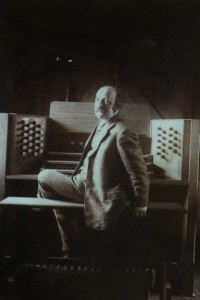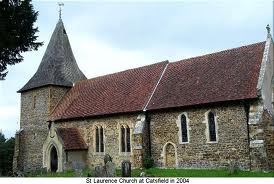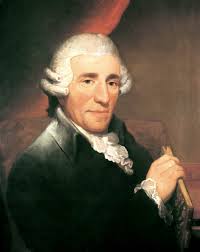Thursday 20 – Saturday 22 February 2014
After weeks of depression and floods what better way to celebrate the signs of spring than to dive into an intensive weekend of J S Bach in the gentle charms of Bath.
Thursday 20 February

We met in candlelight at St Mary’s Bathwick for an evening of French and German liturgical works from The Cardinall’s Musick. The supportive warmth of Rameau’s Laboravi clamans led into a radiant setting of O sacrum convivium, for soprano solo. Campra’s motet gives scope for Julie Cooper’s ringing top notes and long lyrical lines to dance and inspire – a human touch beside the spiritual. Lully’s trio setting of Ave coeli is more serious, yet the underlying dance rhythm smiles through.
The main work of the first half was Charpentier’s Le reniement de St Pierre. Anyone who thinks of the baroque as florid may be surprised by the sparcity of the scoring and clarity of the text, which moves forward with unexpected speed. In fact it is almost over-hasty until we arrive at the point where Jesus looks at Peter. Here time seems to be suspended and Carpentier immerses us in the pain that Peter experiences and the shame which overcomes him. It is masterly.
The second half moved us into a very different world. Bach uses a small double chorus for Furchte dich nicht. Given the clarity of diction in the French items it was immediately obvious that Bach has less interest in the text being heard rather than the overall impact of the polyphonic writing. Here we are lulled into the spiritual world of the text rather than being presented with it. Schutz’ setting of Wie lieblich sind deine Wohnungen, by comparison, was a model of sensitivity to the text and beautifully sung by the two choral groups. The influence of Venice was not far away as the voices glided effortlessly around the building. The two sopranos gave us a bright and uplifting reading of Der Herr ist gross before the early setting of Quid commisisti. The pessimistic and flagellatory text here does not meet more recent understandings of the spiritual life but the final passages are uplifting as the soul turns to God with thanks for mercies.
The final motet was Bach’s Der Geist hilft with a return to the dance rhythms of the earlier French music, concluding with a Lutheran choral in vigorous style. Andrew Carwood understands the generous acoustic of the building, shaping the music to fill the spaces around them, more than amply supported by Robert Quinney’s fine organ continuo playing.
A wonderful start to a very promising weekend.
Friday 21 February – lunchtime at the Guildhall
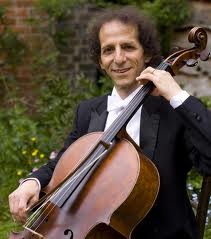
Colin Carr brings such humanity to the Bach cello suites that it was a pleasure to hear him again. This time there was a distinct disparity between the two chosen. Moreover this was far more than the need to retune the top string down a tone for the 5th suite. The 5th is altogether darker in tone and feels as if it comes from a different age and temperament.
By contrast the 4th in Eb is as warm and spiritually uplifting as one could wish. The opening Prelude breathes its long phrases with ease and finds a real sense of joy in the Allemande. If the Courante is more dynamic and positive, it is the smile which emanates throughout which captivates the heart. The Sarabande was marginally more reflective but never became introspective while the two Bourrees brought a gentle tongue-in-cheek quality. The final Gigue danced with enthusiasm, revelling in the tiny nuances of tone and rhythm.
By contrast we seemed to be in a very different world with the 5th suite. The richer texture was immediately obvious and this is a constant for the suite regardless of the movement in hand. The Prelude opens ominously and the fugal section seems to yearn for a fuller setting, as if the other instruments are missing. The Allemande is only just a dance, its broken phrases and sense of fragmentation ever present. There may be more obvious extrovert life in the Courante but there is still a brooding darkness, life a depressive trying to shirk off his mood. The glorious Sarabande hints at late Beethoven in its bleakness and yearning for company. If the two Gavottes are slightly more extrovert in temperament it is wilful rather than joyous. The final Gigue may be dancelike at last but by now any likelihood of joy has been dashed and hope put in its place in the face of insuperable odds.
This was another magnificent performance from Colin Carr. There can surely be few cellists of his insight and sensitivity today. It was a privilege to hear him.
Friday 21 February – evening at the Assembly Rooms

The new deep blue, free-standing back drop made a far more elegant setting within the Assembly Rooms than the steel cage of previous events, and proved a sympathetic environment for the concerti performed by the Academy of Ancient Music. If they seemed at times to be temperamentally at odds with the direction of Richard Tognetti this was more a case of musical approach than technique. The opening concerto for strings and wind by Vivaldi (RV562) had an operatic flair in the outer movements and a sense of mystery in the Grave which was effective and exciting.
Johann George Pisendel was probably an unknown to many in the audience but his Eb concerto for strings had a fine sense of musical line and development. The sombre Andante gave way to a more refined Allegro, allowing Richard Tognetti to give some indication of how fine his 1743 Guarneri actually is.
Before that we had heard Bach’s 3rd Brandenburg concerto. Unfortunately the pace set by the leader was so frenetic that musical line was garbled, detail fudged and any sense of development lost in the hell-for-leather chase to the end. Thankfully the detail was better in Vivaldi’s concerto in B minor (RV580) with some more reflective moments and a more developed sense of line in the final Allegro.
The second half brought us the finest music of the evening, again from a lesser known composer, Francesco Maria Veracini. His Ouverture No5 has the muscle and melodic stamp of Handel, and a delightful set on dances in the French style. The graceful Menuet, with its fine oboe writing, leads to the bounce of the Gigue and the bravura of the final Rigadon. He is certainly a composer who needs to be explored far more thoroughly. If the balance within Bach’s D major concerto BWV1064 for three violins was better than the earlier work, there was still a tendency to fudge detail and allow the balance between soloists and continuo to mask the development of ideas.
The final concerto returned the horns to the stage for Vivaldi’s RV569. Their joyous conviviality brought the main concert to a close with lively enthusiasm.
A brief Vivaldi encore was the first time we really heard Richard Tognetti’s Guarneri give any indication of its true worth. A pity he had not chosen at least one work of greater introspection to allow us to hear his more sensitive side.
Saturday 22 February – morning at the Assembly Rooms

J S Bach was such an accomplished organist it is often overlooked that he was an equally respected violinist, often leading his orchestral forces from the violin rather than harpsichord or organ. Christian Tetzlaff gave us an exemplary demonstration of Bach’s consummate ability playing two of the sonatas for solo violin and two of the partitas. The first half proved challenging for both sides of the platform. The Sonata no 2 in A minor opens sternly with a Grave which meanders lovingly towards a fugue which should be near impossible to bring off successfully, given the amount of double and triple stopping involved. The gentle Andante is equally challenging technically and leads us into the serious but fleeter Allegro. The D minor Partita seems almost light by comparison, with its dance sections and pronounced rhythms, yet the Sarabande is plaintive to the point of melancholy, vanishing eventually into silence. The concluding Ciaconna is almost as long as the other movements together, opening with nobility and power, but then finds moments of introspection on its long journey towards an extended close.
The second half moved us into major keys, but the seriousness continued at least in the C major sonata. More relaxed in the opening Agadio, the Fuga is based on a chorale and flows more conventionally, making the whole easier on the ear. The gently unfolding Largo leads into a joyful and passionate final Allegro assai.
The final work, the Partita No3 in E major, seemed almost light after the high levels of concentration needed for the earlier pieces. The familiar Preludio and Gavotte acted as buffers for the other dance movements, sweeping all before them.
There was no encore, and given the intensity of the programme it would have been wrong to expect one. This was a masterly performance of some of Bach’s most complex and demanding scores. We were fortunate to hear it under such fine circumstances and from such expert hands.
Saturday 22 February – evening in the Abbey
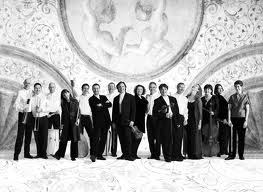
A fine evening – in fact the weather had been surprisingly kind to us over the three days – and a warm abbey for the climax of the 2014 festival; Bach’s Mass in B minor with the London Consort. Most of us are used to the work being presented with substantial numbers of choral singers, plus soloists and an equally substantial orchestra. Here the performers were pared down to the minimum, but given the quality of everyone involved there was little doubt as to the exceptional standard of what we experienced. Eleven singers shared not only the choruses but also the solos, moving adroitly from one part to another. Moreover there was no sense of this being a chorus of solo voices, so well balanced were they. The fresh, young sopranos were ravishing in the Sanctus but did not lack weight in the opening of the Credo or more extrovert passages of the Gloria.
There was also impressive solo instrumental work from violinist Penelope Spencer and horn player Ursula Paludan Monberg.
Philip Pickett was unwell and his place was taken by David Roblou who is more normally seen at the organ continuo. He handled the score with natural grace and sympathy for its spiritual life as well as its many musical challenges.
The Abbey was full and the audience highly enthusiastic. Rightly so, for this had been an exemplary undertaking, proving yet again how much can be achieved within a short space of time. We can only hope – same time, next year!

